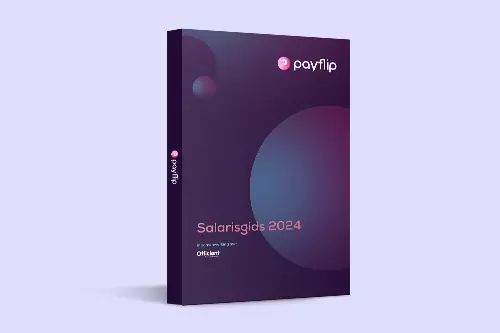High wage indexations, a strong curtailment of the copyright regime, a greening of mobility, the flexibilization of pay packages... All hot topics these days! What awaits you in 2023 and how can you deal with it concretely? In this article about Alternative Compensation in 2023 we give you some tips & tricks. Read on!
A way out of high labor costs
This is probably no surprise to you as an employer. As of January 2023, your labor costs will increase (drastically)! How much more you have to pay your employees depends on your joint committee. Wages in the private sector are not increased at the same time or by the same amount. In the largest joint committee in our country - joint committee n° 200 - wages are indexed every year on January 1. Based on current forecasts (November 2022), the wage indexation for this sector on January 1, 2023 would provisionally be as high as 10.84%. This is historically high!
More and more companies are looking for a solution to control these increased labor costs. More than ever, flexible compensation is the way to go! Continue reading👇

Copyright under the radar
Copyrights are a media hot topic these days! The curtain seems to be coming down soon on the copyright regime for employees (we will not comment on other target groups). Finance Minister Vincent Van Peteghem wishes to limit the regime to "real" artists, citing the initial design of the regime, which was intended to favor "beneficiaries who are naturally exposed to the risks of volatility and uncertainty inherent in designing and performing artistic work."
There is currently speculation and writing about preliminary texts - even though there are apparently no longer any major disagreements on the issue within the ruling parties. Moreover, note that the legislative proposal currently speaks of a 2023 transition period for all companies that were already granting royalties in 2022.
Payflip continues the copyright saga for you.

Green mobility
The company car still remains popular in Belgium, although more and more employers are becoming aware that offering an alternative to the company car, such as the mobility budget, is a must!
Employer car expenses are largely deductible at present, but this will change beginning in July 2023. The deduction for fossil-fuel commercial vehicles will decline year by year beginning in July 2023, to die out by 2028. There will be no break-in of existing renting or leasing contracts or of company cars purchased before July 1, 2023.
Tip💡Startgreening your fleet now (hybrid and/or electric cars) and offer your employees the opportunity to exchange their (right to a) company car for a mobility budget. After all, the greenest company car is not a company car! Employees can then spend the mobility budget in a tax-friendly way on sustainable mobility solutions and housing costs (gross = net). Read more about this in our e-book on the mobility budget and below.

The labor market in 2023
- Focus on (extralegal) benefits
As a perk on top of employees' monthly gross pay, fringe benefits are still too often unused!
These benefits and expenses are an absolute must:
- Meal vouchers and eco vouchers
- Hospitalization insurance and - if you want to go the extra mile - outpatient expense insurance for employees and family members
- Work from home allowance (142.95 EUR/month), possibly increased by an Internet allowance (20 EUR/month) (for work from home only)
- PC
- Smartphone subscription
- Company car or the mobility budget
- Optimized bonus: wage bonus CLA 90 and/or profit bonus
- Group insurance (declining popularity)
- Flexibility is a must!
Employees and candidates expect more and more flexibility from their employers. Such flexibility translates on several levels:
- Work Hours
- Homework
- Leave days
- Mobility 💜
- Salary 💜
- ...
Regarding the latter, the cafeteria plan offers an answer. Employees can put together their own pay package based on a plan drawn up by the employer. In the context of such a cafeteria plan, employees are concretely given the opportunity to exchange parts of their "traditional pay" (year-end bonus, bonus, percentage of monthly gross pay, etc.) for other benefits that give them greater satisfaction. Download our e-book on the cafeteria plan and know how to keep increased labor costs under control!
The mobility budget also offers more flexibility! This allows employees to exchange their (right to a) company car for tax-friendly mobility solutions.
Find out more about both pillars of flexible pay in our flexible pay guide! A must read.

Curious about even more tips & tricks? Read our Salary Guide here. The 2023 version will follow soon - be quick!





